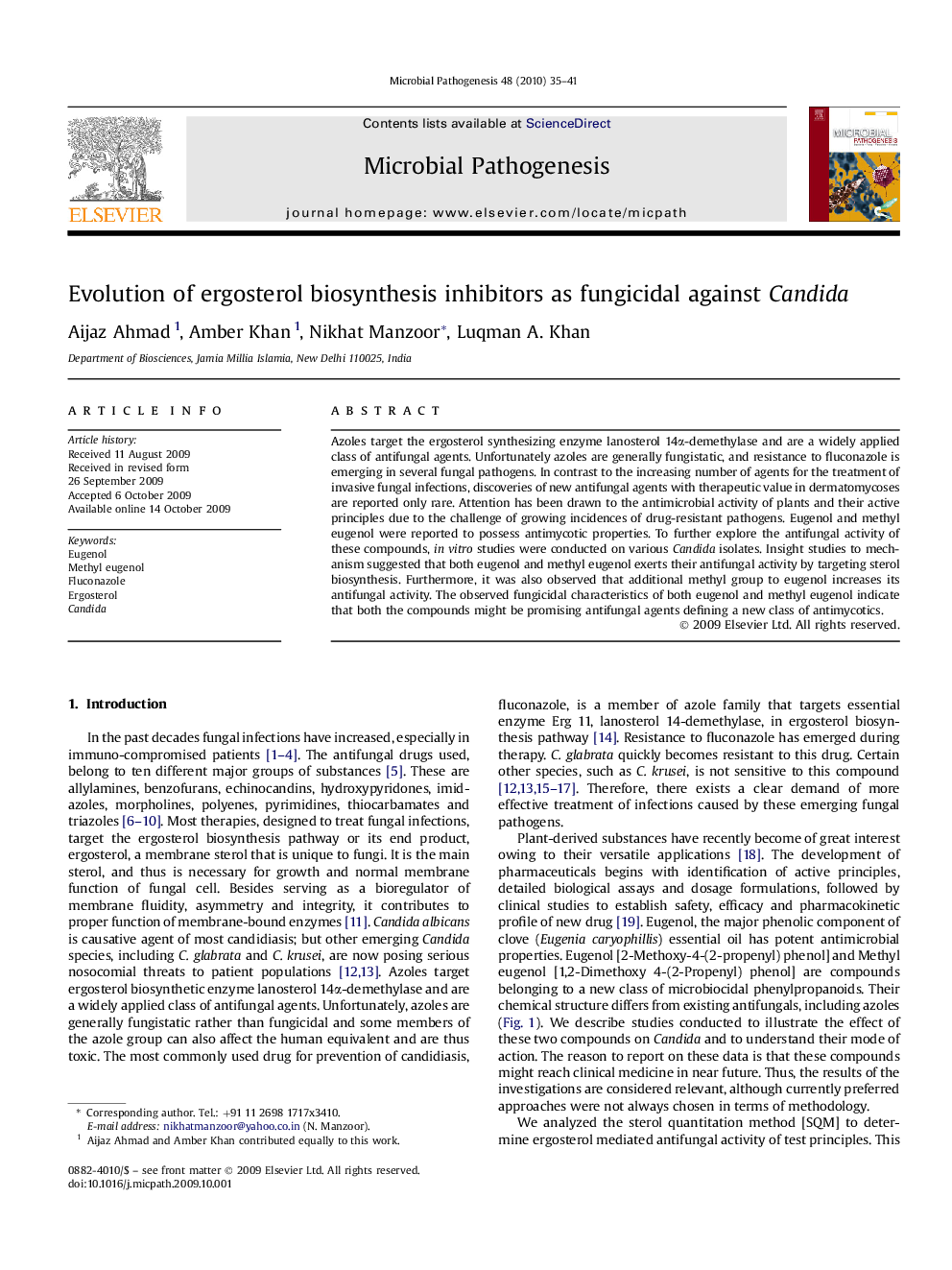| کد مقاله | کد نشریه | سال انتشار | مقاله انگلیسی | نسخه تمام متن |
|---|---|---|---|---|
| 3416926 | 1225162 | 2010 | 7 صفحه PDF | دانلود رایگان |

Azoles target the ergosterol synthesizing enzyme lanosterol 14α-demethylase and are a widely applied class of antifungal agents. Unfortunately azoles are generally fungistatic, and resistance to fluconazole is emerging in several fungal pathogens. In contrast to the increasing number of agents for the treatment of invasive fungal infections, discoveries of new antifungal agents with therapeutic value in dermatomycoses are reported only rare. Attention has been drawn to the antimicrobial activity of plants and their active principles due to the challenge of growing incidences of drug-resistant pathogens. Eugenol and methyl eugenol were reported to possess antimycotic properties. To further explore the antifungal activity of these compounds, in vitro studies were conducted on various Candida isolates. Insight studies to mechanism suggested that both eugenol and methyl eugenol exerts their antifungal activity by targeting sterol biosynthesis. Furthermore, it was also observed that additional methyl group to eugenol increases its antifungal activity. The observed fungicidal characteristics of both eugenol and methyl eugenol indicate that both the compounds might be promising antifungal agents defining a new class of antimycotics.
Journal: Microbial Pathogenesis - Volume 48, Issue 1, January 2010, Pages 35–41